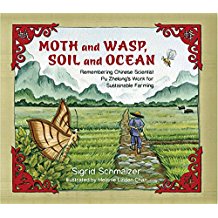2018 School Spending Survey Report
Moth and Wasp, Soil and Ocean: Remembering Chinese Scientist Pu Zhelong
illus. by Melanie Linden Chan. 40p. further reading. Tilbury House. Feb. 2018. Tr $17.95. ISBN 9780884484042.
COPY ISBN
VERDICT Readers interested in environmental science and Chinese history, language, and culture will find an engaging and informative story here.
ALREADY A SUBSCRIBER? LOG IN
We are currently offering this content for free. Sign up now to activate your personal profile, where you can save articles for future viewing





Be the first reader to comment.
Comment Policy:
Comment should not be empty !!!